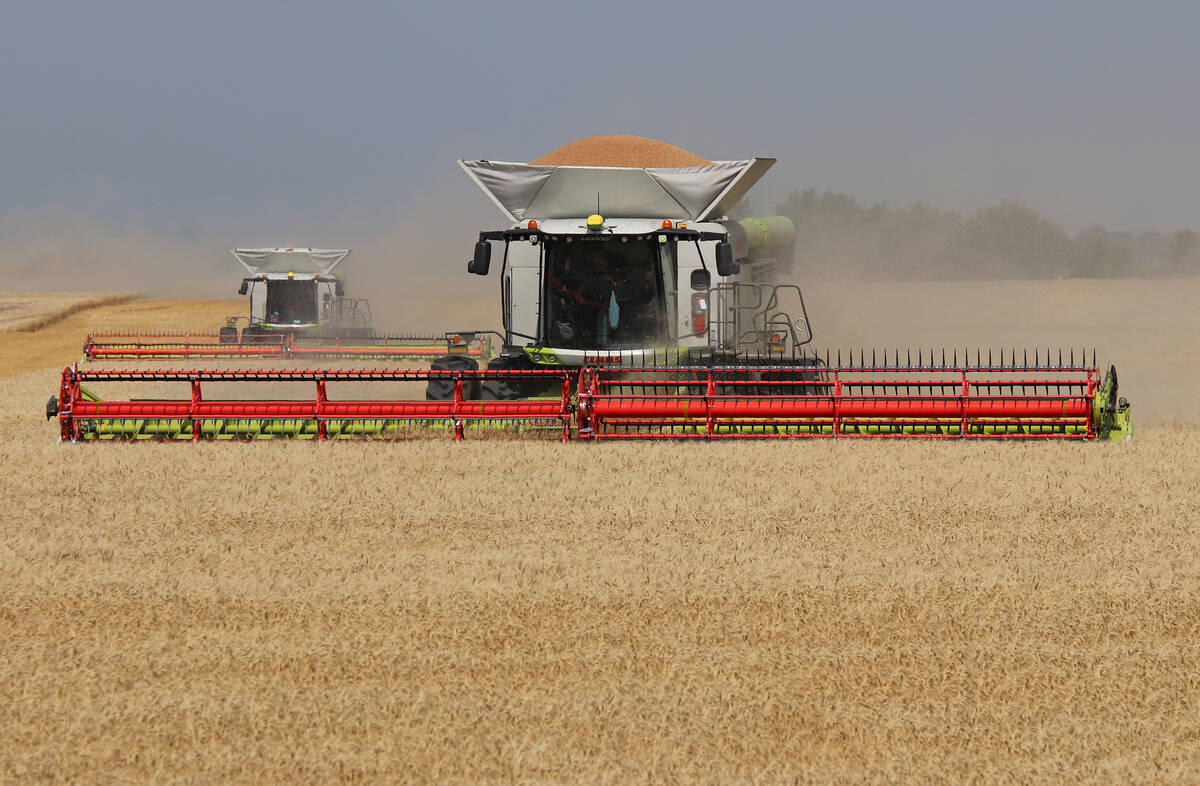They farm on opposite sides of the country, but 2004’s Outstanding Young Farmer couples share the same conclusion about being young farmers today.
“It’s been a challenge,” said both B.C. chicken grower Rick Thiessen and Nova Scotia dairy producer Jack Thomson in interviews two days before being voted Canada’s Outstanding Young Farmers for 2004 on Nov. 19.
But Rhonda MacDougall, Jack’s wife, and Karen Thiessen also shared the same sunny outlook: “We’re optimistic,” both said separately.
The Outstanding Young Farmers program operates in seven regions in Canada, including a provincial competition in each of the four prairie provinces.
Read Also

China’s grain imports have slumped big-time
China purchased just over 20 million tonnes of wheat, corn, barley and sorghum last year, that is well below the 60 million tonnes purchased in 2021-22.
The program is intended to highlight young couples who are dedicated to agriculture and offer an example for others to learn from.
Often the winners of the competition are notable for simply surviving the constant crises of modern farming, and this year was no exception.
The Thiessen family produces chicken in B.C.’s Fraser Valley, the area devastated by avian influenza this year. After shipping out a load of birds in the spring, the Thiessens found themselves with empty barns as the hatcheries were infected with the disease and then depopulated.
For five months the main business of the Thiessen farm sat silent, awaiting an end to the crisis.
Rick said the farm faced financial challenges because there was no chicken production, but it still had debts and wages to pay.
But the worst aspect of the plague was “not knowing when it would end.”
Rick said he didn’t have much time to despair because as president of the B.C. Chicken Growers Association he was running all over the province dealing with the crisis.
“I was busier than when we were in full production,” he said.
Karen said the stress hit her differently, because she was often alone at the farm with the children, wondering what the future would bring.
“My husband was gone for at least three months (during the crisis),” said Karen.
The farm kept going and could make its payments with patience from the bank and with revenue from the farm’s trucking and grain storage businesses.
Even though the crisis took a heavy toll this year on the two 35-year-old farmers, the Thiessens were not intimidated by the avian flu outbreak, and look forward to life as farmers.
“As long as we can adapt and be nimble enough to react to things that come our way, I think we’ll be fine,” said Rick.
“We’ve got a good industry.”
They’re hoping some or all of their four children – Brandon, 8, Ryan, 6, Benjamin, 4, and 15-month old Emily – follow a life in farming when they grow up.
Jack Thomson and Rhonda MacDougall lost a lot of their annual income when the BSE crisis slammed shut the U.S. market for live cattle. Usually about 18 percent of their dairy farm’s income comes from breeding stock sales to U.S. buyers. In one year the income from those sales fell to $35,000 from $130,000.
“We borrowed money based on that revenue,” Jack said. “The payments are still there, but the sales aren’t.”
The family cut some costs and kept going.
“It’s really hammered our cash flow, and it’s really challenged us to be good,” said Jack.
That was already a focus on the farm, he said, because they know supply management may end some day, and they need to produce milk that can compete with world prices.
“We’ve decided to be efficient, no matter what the world environment is. … I’d be lying if I said I didn’t think about world trade, but our focus is on producing safe milk for my neighbours every day and keeping it affordable,” said Jack.
In spite of all the challenges, Rhonda said they wouldn’t consider abandoning farming. There’s more to being a farm family than simply running a business.
“We both grew up on farms and that’s instilled in our beliefs and values,” said Rhonda. “It continues on into what you make your livelihood.”
Jack said a farm is the best kind of business for him to manage.
“I’m my own boss. It’s quiet. Each season brings its own work.”
The couple has three sons – four-year-old Shamus, 20-month-old Bryce and seven-week-old Keith – and is happy the family will grow up on a farm producing milk.
“There’s a lot of satisfaction in producing something that everybody needs,” said Rhonda.
Added Jack: “We do a pretty important job.”















